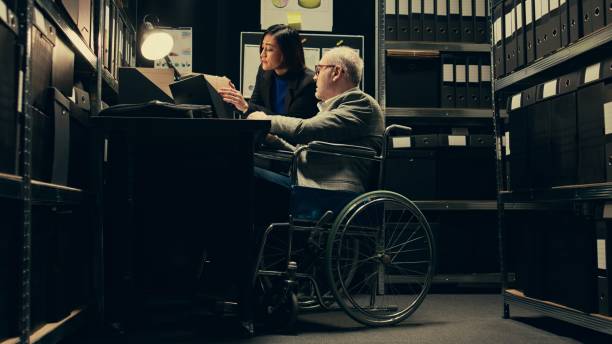How to Get Approved for Social Security Disability?

Social Security Disability Benefits: A Comprehensive Guide
Social Security Disability benefits provide critical financial assistance to individuals who have long-term disabilities that prevent them from working. Administered by the Social Security Administration (SSA), these benefits are designed for those who meet strict medical and work history criteria. Understanding the application process, eligibility requirements, and common pitfalls can help increase the chances of a successful claim. Applying for Social Security Disability benefits can be challenging, as many initial claims are denied due to incomplete documentation or failure to meet eligibility standards. In this guide, we will explore the eligibility requirements, how to compile strong medical evidence, the role of work history, the application process, reasons for denials, and how to appeal a denied claim. This information will help you navigate the system and maximize your chances of receiving benefits.Eligibility Criteria for Social Security Disability Benefits
To qualify for Social Security Disability benefits, applicants must meet specific requirements set by the SSA. These include medical condition criteria, work history requirements, and functional limitations that prevent an individual from engaging in substantial gainful activity (SGA).1. Medical Condition Requirements
The SSA evaluates disability claims based on the severity and duration of the applicant’s condition. To be eligible:- The medical condition must prevent the applicant from working for at least 12 months or be considered terminal.
- The condition should be listed in the SSA’s Listing of Impairments, which outlines qualifying disabilities. If the condition is not listed, the applicant must provide medical evidence proving that their condition is equally severe.
- Chronic illnesses, physical impairments, and mental health disorders can qualify if they significantly limit the ability to work.
2. Work Credit Requirements
Applicants must have sufficient work credits based on their previous employment history. These credits are earned through Social Security tax payments made while working.- Typically, an applicant needs 40 credits, with at least 20 earned in the last 10 years.
- Younger individuals may qualify with fewer credits if they have a limited work history.
- Those who do not have enough work credits may still qualify for Supplemental Security Income (SSI), which is need-based.
3. Functional Limitations
Beyond having a qualifying medical condition, applicants must prove how their disability affects their ability to perform basic work activities, such as:- Lifting, standing, walking, or sitting for prolonged periods.
- Concentrating, remembering details, or interacting with others in a workplace setting.
- Performing tasks required in previous jobs or transitioning to new work.
Gathering Strong Medical Documentation
Medical documentation is the backbone of a successful disability claim. The SSA requires clear evidence proving the severity and impact of a disability.1. Obtain Comprehensive Medical Records
- Request copies of all medical reports, including doctor’s notes, test results, imaging scans, treatment plans, and hospital records.
- Ensure that records are up-to-date and accurately reflect the current state of the disability.
2. Document Symptoms and Limitations
- Maintain a journal describing daily symptoms, pain levels, medication side effects, and how the condition affects everyday activities.
- Keep track of medical appointments and prescribed treatments.
3. Secure Supporting Statements from Doctors
- Request written statements from primary care doctors and specialists detailing how the disability limits work capabilities.
- Reports from medical professionals such as neurologists, orthopedic surgeons, or psychologists hold more weight in the SSA’s evaluation process.

Ready to connect with top legal professionals? Get immediate support— Call us at 877-550-8911.
The Role of Work History in Your Application
Your work history is a key factor in determining eligibility for benefits. The SSA examines past employment to assess whether you can return to previous work or adjust to a different type of job.1. Provide Detailed Employment Information
- List all jobs held in the past 15 years, including job titles, employer names, and dates of employment.
- Describe job duties, physical and mental demands, and required skills.
2. Explain How Your Disability Affects Work Ability
- If you were a construction worker, describe how chronic pain or mobility issues prevent you from lifting heavy materials.
- If you worked in an office setting, explain how anxiety or cognitive impairments hinder concentration and productivity.
Navigating the Social Security Disability Application Process
The application process for Social Security Disability benefits involves multiple steps. Following these steps carefully can increase the likelihood of approval.1. Determine Eligibility
- Confirm that your medical condition meets the SSA’s disability standards.
- Ensure you have enough work credits.
2. Submit a Complete Application
You can apply online, by phone, or in person at an SSA office. Include the following:- Medical records and physician statements.
- Work history details.
- Proof of income (W-2 forms, tax returns, pay stubs).
- Personal identification (birth certificate, Social Security card).
3. Prepare for Possible Appeals
- Many initial claims are denied. If this happens, you can request reconsideration or a hearing before an administrative law judge.
- Hiring a disability attorney can improve your chances of success during the appeals process.
Common Reasons for Denial and How to Avoid Them
Understanding the common reasons claims are denied can help applicants avoid mistakes.1. Lack of Sufficient Medical Evidence
- The SSA requires detailed records proving the severity of a disability.
- Solution: Submit all relevant medical documentation and keep records updated.
2. Failure to Follow Prescribed Treatment
- If an applicant does not follow recommended treatments or attend medical appointments, the SSA may deny the claim.
- Solution: Follow medical advice and keep records of compliance.
3. Ability to Perform Other Work
- The SSA may deny a claim if it believes the applicant can adjust to a different job.
- Solution: Provide strong evidence showing how the disability prevents employment in any capacity.

How to Appeal a Denied Claim?
If a claim is denied, applicants can take several steps:- Request Reconsideration – Submit additional medical evidence for further review.
- Hearing Before a Judge – If reconsideration fails, present the case before an administrative law judge.
- Appeals Council Review – If the judge denies the claim, request a review from the SSA Appeals Council.
- Federal Court Appeal – As a last resort, file a lawsuit in federal court.
Tips for Strengthening Your Disability Application
- Be Thorough – Provide detailed medical and work history documentation.
- Be Specific – Clearly explain how the disability limits daily activities.
- Seek Professional Help – Disability advocates or attorneys can assist in navigating the complex process.
Resources for Assistance with Disability Claims
- SSA Local Offices – Provide in-person application assistance.
- Non-Profit Organizations – Offer workshops and support for disability claims.
- Disability Attorneys – Specialize in appeals and legal representation.
FAQs
1. How long does it take to get approved for Social Security Disability? The process typically takes 3-5 months for an initial decision, but appeals can extend it beyond a year. 2. Can I work while receiving disability benefits? Limited work is allowed under the SSA’s Ticket to Work program, but earnings must stay below SSA thresholds. 3. What happens if my condition improves? The SSA conducts periodic reviews, and benefits may stop if a medical improvement is found. 4. Do I need a lawyer to apply for disability benefits? While not required, legal assistance significantly improves approval chances, especially during appeals.Don’t wait to secure the legal representation you deserve. Visit Legal Case Review today for free quotes and tailored guidance, or call 877-550-8911 for immediate assistance.



